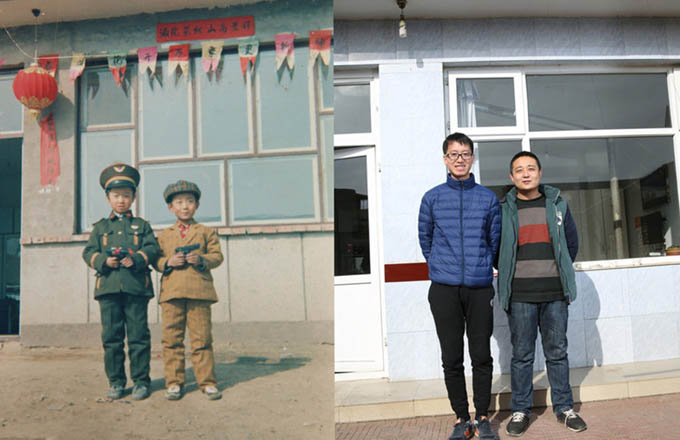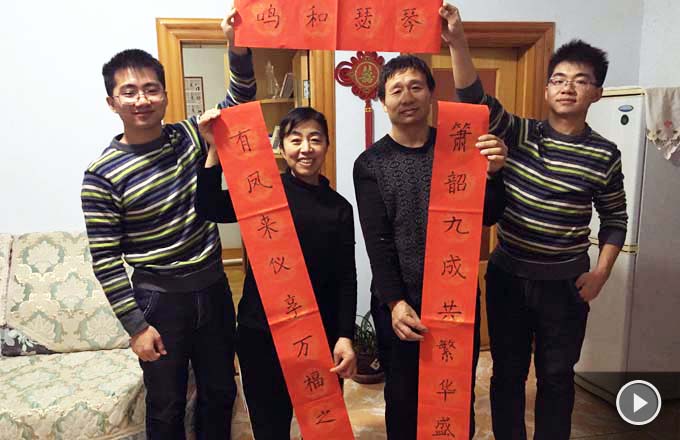Chinese public calls for tackling water pollution
BEIJING - With Friday marking World Water Day, many Chinese are taking the opportunity to issue renewed calls for more efforts to fight severe water pollution.
Following days of heavy smog that smothered large swathes of China earlier this year, polluted water is becoming another major issue among the country's citizens.
Related:Photo special: World Water Day
Activists on popular social media websites have repeatedly called for treating water pollution and related scares have popped up across the country.
"Today marks World Water Day. We should not only conserve water, but also pay attention to and expose water pollution," said Xue Manzi, a well-known investor, on Sina Weibo, the Chinese version of Twitter.
"Dead pigs float on rivers and sewage is discharged untreated into rivers and underground," said Xue.
Earlier this month, thousands of pig carcasses were discovered in the Huangpu River, which provides 22 percent of Shanghai's tap water. The incident raised significant concern, although local authorities tried to reassure local residents that the water was safe.
In February, microblog posts revealed that some factories in the city of Weifang in east China's Shandong Province had disposed of waste water underground, thus polluting the local water supply.
Xue campaigned in the past to push the government to publicly issue data for PM 2.5, or airborne particles less than 2.5 micrometers in diameter that can pose health risks.
His latest call for clean water has triggered heated discussion.
"Clean water and air are prerequisites for the survival of mankind. A responsible government will strictly protect the environment from being polluted," said a microblogger using the name "zhu'agong" on Sina Weibo.
According to the Ministry of Environmental Protection, underground water in 57 percent of monitoring sites across China is polluted or extremely polluted. In addition, 298 million rural residents do not have access to safe drinking water.
"Water is the lifeline for both people and cities. Without safe water resources, construction in small towns could soon turn into ruin," said Dong Liangjie, a water treatment specialist.
In big cities like Beijing, many residents drink bottled water instead of tap water, even though the city's water authorities have repeatedly assured the public that the tap water is safe.
Many do not trust the government's test results and others believe that national water quality standards are too low.
A mountain of garbage covering an area 23,000 square meters in size was reported Friday in Xinglong County in north China's Hebei Province. The garbage is located upstream from a lake that serves as a major water source for Beijing.
Now even rural residents have become the victims of rampant pollution that has been blamed on an extensive growth model, loose law enforcement and low emission standards.
Residents of a township in Pingjiang County in central China's Hunan Province buy bottled water instead of drinking tap water, as they believe the tap water has been polluted by local factories. The country government has stated repeatedly that the tap water is safe.
Wu Jin'an, deputy director of the Pingjiang county bureau of environmental protection, said two small paper mills located near a local river were shut down in the first half of 2008.
Liao Bing, a researcher with the Jiangxi Academy of Environmental Sciences, said authorities should step up monitoring of water resources and neighboring areas.
"The quality of drinking water can only be ultimately ensured after industrial zones and agricultural farms are separated from water resources," said Deng Nianhua, a lake protection expert with the Jiangxi Academy of Sciences.
- Hunan to collect tap water data
- No Zhejiang dead pigs enter market: official
- China tackles environment issues through legislation
- China begins underground water safety investigation
- Guangdong officials who fail pollution target not promoted
- Jiangxi water supplies return to normal after gasoline leakage
- 60,000 affected by E China water pollution
























